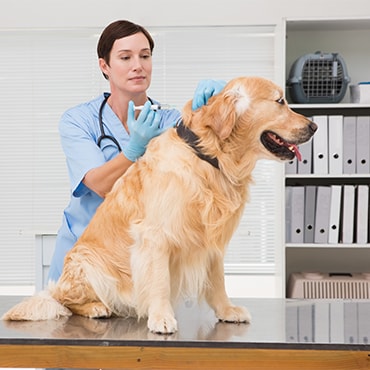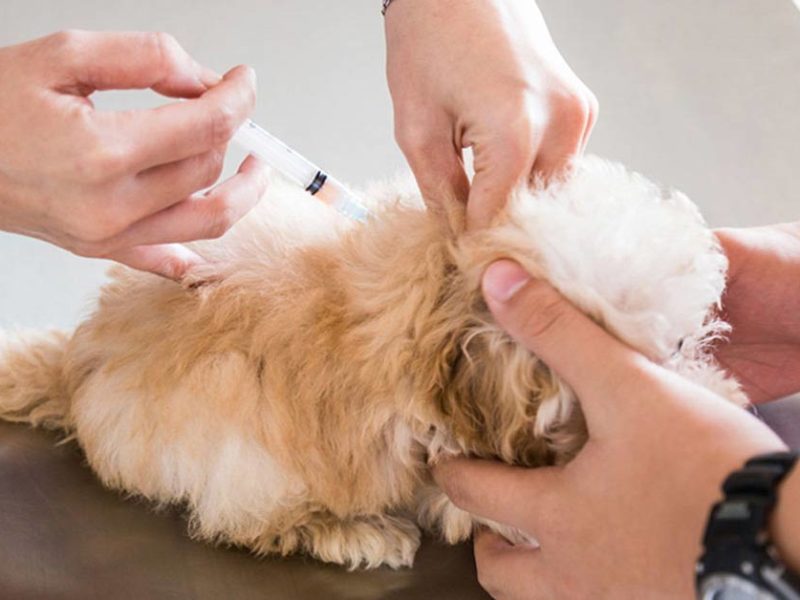Getting shots can be a bit hectic, especially when it comes to pet care. The inconvenience stems from the fact that there are so many diseases to which your pet might be vulnerable, but you have got no clue about them. In fact, in some cases, people haven’t even heard of a few diseases for which the pet has to be vaccinated. Canine vaccination is no exemption to this wilderness experienced by people who pet them. After having a lot of fun with your puppy, at some point, you have to ask this question. What vaccines do dogs need? What shots should my puppy get? If you are new to the canine world, don’t worry, you are just at the place you need to be. In this discussion, we will talk about the possible risks against which your pup or dog must get vaccinated.
But before we do that, let us recall the importance of vaccines, or rather, dog vaccines!
Why are dog vaccines important?

A vaccine is a formula that is designed to stimulate the immune system against foreign invaders. The ingredients of a vaccine include antigens or regions of a possible threat, e.g., a virus. When introduced into the body of an animal or a human, these antigenic regions that are mainly protein by nature, stimulate the immune system to produce a response. This response creates a memory of the antigen. When such a virus attacks the animal or human later in life, the immune system can easily produce eliminating responses against this antigen courtesy of this memory. So, you can see why dog vaccines are so important for your canine friend.
Core dog vaccines
There are two main categories in which dog vaccines have been divided. These include the core dog vaccines and non-core dog vaccines. First, let us have a look at the core dog vaccines. These are the vaccines that your dog needs to be administered as a puppy. Veterinarians worldwide agree that these shots are vital in prevention against some of the most potent viral agents. Several vaccines fall under this category. These include the rabies vaccine, distemper vaccine, the parvovirus vaccine, and the adenovirus vaccine. We are going to discuss two of these shots in detail.
1- Canine distemper
There is more than one route through which the virus that causes distemper disease can attack the body. The targets of this viral agent include the GI tract, respiratory systems, and nervous systems. Symptoms of this disease include violent seizures and vomiting. Since there is no cure for this disease, vaccination is the best chance your canine friend has got.
2- Canine Parvovirus
Your puppies are at extreme risk of parvovirus infection, especially those less than four months of age. Symptoms of this disease include loss of hunger and diarrhea. Again, this is a disease for which no cure exists as of now. Hence, your puppy must get the shots as soon as possible.
Non-core dog vaccines

The fact that these vaccines are not included in the core category doesn’t diminish their value. These vaccines are equally important for your dog’s health. Some of these vaccines include shots for Bordetella, Influenza, Lyme, and Leptospirosis. The contagiousness and infectivity of agents causing these diseases show us that these diseases are not to be taken lightly. Out of these, we discuss two rather commonly occurring diseases that require a non-core dog vaccine. These include Lyme and Leptospirosis.
1- Lyme disease
Spirochete bacteria are the cause of this life-threatening canine disease that is transmitted by ticks. Those dogs that become infected by this disease begin to walk with a limp, while abnormal lymphatic growth in the nodal region is observed. The severity of the infection demands a shot of the concerned vaccine.
2- Leptospirosis
This is a bacterial disease that is placed under the zoonotic category of the diseases. What does that mean? It can be transferred from animals to people. Hence, if you don’t opt for a vaccination course, your health is compromised. Some of the common symptoms of Leptospirosis include pain in the abdominal region, which is accompanied by diarrhea and laziness.
Factors that govern dog vaccination

At this point in the discussion, it would be prudent to mention the factors that influence vaccination when it comes to dogs. You cannot and must not vaccinate your furry little puppy against every disease in the book. No, you have to consider several things before you make the vaccination call. Age is the biggest factor and pretty much defines what sort of vaccination is right for your puppy. Then, you must be mindful of the previous medical condition and history of your pet. Are you moving soon or plan to move soon? The vaccination demands may change accordingly.
Puppy vaccination
Many people have been known to mess up things as far as puppy vaccination programs are concerned. Some folks cannot figure out the ideal age for their puppy to be vaccinated! If you are one of those people, let us help you a bit. Normally, and ideally as well, the first shots need to be administered between 6-8 weeks of age. A break must follow this vaccination round, and the process needs to be resumed then, ideally after three weeks.
Schedule for puppy vaccination
We have discussed the when aspect of puppy vaccination. Now, let us talk about the vaccination schedule of your puppy. By that, we refer to the vaccines that are to be administered schematically. Which shot is most appropriate for which age group? Well, you would be glad to know that there exists a shot that covers four viral diseases, including distemper, hepatitis, parvovirus, and parainfluenza. The shot is abbreviated as DHPP, and this one, along with the one for kennel cough, ought to be administered first. When the age timeline is around 12-14 weeks, it is an ideal time to give a DHPP along with shots for Leptospirosis. Follow it up with yet another round of the same vaccines, preferably with a shot of rabies included.
Schedule for dog vaccination

Enough with the pup care, what about the adult dog vaccination? Well, as a puppy, your dog has completed a round of core vaccines. Now, it is time for some boosters. However, we implore you not to play the doctor and let your vet design a vaccination schedule for your dog. There are hardly any new additions to the vaccination chart that was made for your puppy. However, one important factor that needs to be considered is, of course, the lifestyle of your dog. This can lead to the addition of a vaccine like the one for Bordetella into the chart. Lyme and rabies vaccines are commonly featured in an adult dog vaccination chart.
Efficacy of vaccines
We won’t be surprised to know if your mind is already asking questions about the effectiveness and efficacy of the adult dog vaccines. It is natural to be curious and a sign that you have read this discussion with great attention. As far as the effectiveness is concerned, these shots are a promise that your dog will not suffer from these horrible diseases of gastrointestinal, lymphatic, neurological, or respiratory nature, which can prove fatal. The efficacy? Well, there is a certain period for which each vaccine is effective until your dog gets the booster shots. For DHPP and rabies, this period is around three years, while for a majority of other diseases like Leptospirosis and Lyme, this period is around one year.
Side risks

What these vaccines achieve is priceless, and that is things mildly put. Vaccinology is a gift of the 20th and 21st centuries, with special reference to dog vaccination. And yet, there are some side effects that we must mention before we jump to the conclusion of this discussion. So, what’s the worst that could happen because of shots when it comes to dogs? We can assure you that adverse reactions are quite rare when it comes to dog vaccination. However, several symptoms can show your dog had a response to the injected vaccine. These include a loss of appetite, diarrhea, and hives in some cases, fever, and a few other mild symptoms which must be put up with for the sake of the greater good!
Conclusion
As you might have guessed from the sudden change in our tone, we have reached the concluding remarks of this discussion. Wow, that didn’t feel like a lot of time; time flew! However, we hope that the time you spent reading this discussion was worth it. People tend to be a bit lazy or relaxed when it comes to vaccination, especially canine vaccination. But like we showed in this article, this is a trend that can prove to be fatal for your dog’s health. In the case of zoonotic diseases, you put your life at risk as well. So, what are you waiting for? Pick up the phone and book an appointment with the vet right now!
